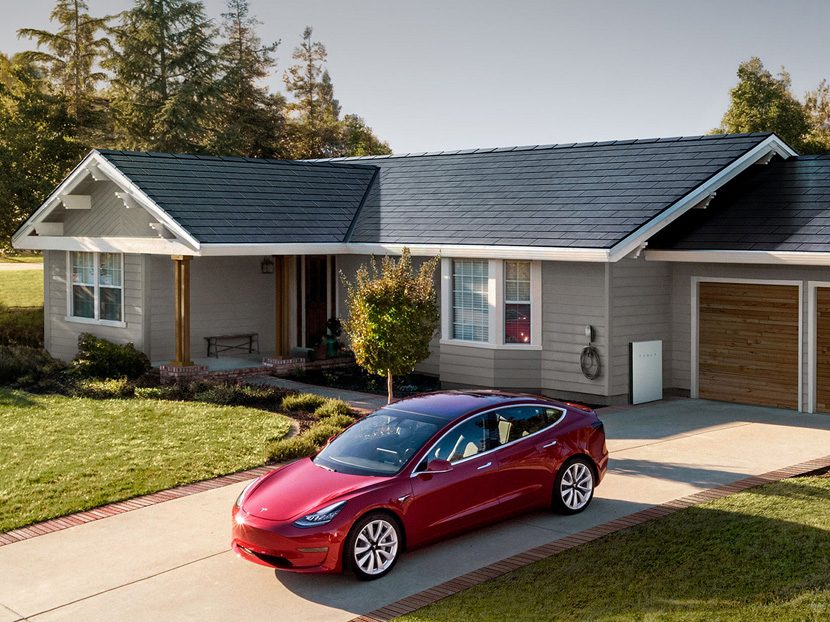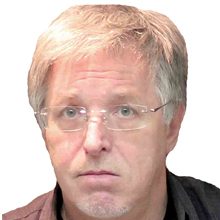The Great Disruptor
Considering building, engineering and the roles Elon Musk and Tesla play

Does 2020 feel as if it will be forgotten? Will this year’s events change the way many of us think? Will they shape the way we live in the future? The new normal just isn’t normal. Business as usual doesn’t seem to be among the options available to anyone.
Although plumbing, heating and construction are ever-changing, history shows they actually evolve slowly. And yet again, during 2020, it no longer feels that way. Virus control, heat waves, floods — events that previously may have seemed unconnected to our industry are suddenly changing the way we talk about our work, with new rules coming at us more quickly than ever before.
Tesla Goes Mainstream
One unconnected development in America is the rise of Tesla. Yet, its emergence is relevant to our industry, to the field of engineering, and perhaps even to the history of our planet.
Years ago, young engineers dreamed of working at NASA, IBM, Intel, GE or Apple. Today, they aspire to a position with Tesla, SpaceX or other companies associated with Elon Musk because everyone wants to be part of something that is changing the world. And make no mistake, companies such as Tesla and today’s engineers and scientists are doing just that.
Anthropologists believe humanity has been able to control fire for about one million years, but it wasn’t very long ago that we created ways to mix fire with fossil fuels. The coal power plant was invented during the 1880s, the internal combustion vehicle soon after that, followed by oil furnaces to heat our homes.
Driven by global population growth from 2 billion to 8 billion, these three systems and others like them have been added madly all over the planet. In less than 140 years, they have obliterated the Earth’s carbon balance and overwhelmed our fragile atmosphere and ecosystems.
While documenting the widespread damage we’ve wreaked in just over a century, scientists worry about the results of numerous exponential trends in the next few decades. They want us to change course dramatically. And it appears that finally, as we reflect on what one tiny virus can do to change our lives completely, citizens and governments everywhere decided it’s time for proactive action to get ahead of the worst of climate change.
Leading the charge in the North American private sector are companies managed by the ever-controversial Elon Musk. Like Nikola Tesla, who fought technology battles with Thomas Edison and others more than a century ago, Musk is the great disruptor, seeking to electrify buildings, transportation and power generation against, perhaps, even longer odds. But he is beginning to succeed, aided by a great engineering team and overdue shifts in the public mood.
Publicity centers on advances in transportation, of course; however, there has been the quiet and steadily growing adoption of Tesla batteries and software alongside renewable power plants and residential/commercial/industrial microgrids.
Additionally, the long-promised Tesla solar roof ramp-up may finally blossom soon. Despite massive rooftop solar popularity, the integrated solar roof is undergoing a “strategic retool.” Musk is now hinting at a residential package price on a system comprised of a solar roof, home batteries and vehicle charging.
Although this part of the grand Musk vision has had its missteps, the marketplace is increasingly ripe for some missing links in the clean energy, virus-free, high-tech smart home. As mechanical engineers, electricians and architects work out the kinks of heat pumps, energy recovery ventilators and the North American electrified habitat of the future, Tesla might be in the right place at the right time once again.
The Million-Mile Battery
For electric vehicles, renewable power and electrified homes, it’s all about batteries. In June, I spoke to Musk’s top battery guru, Connecticut native Jeff Dahn. He oversees about 50 of the world’s leading electricity storage experts, working on two research projects at Canada’s Dalhousie University in Halifax, Nova Scotia.
“[Energy] storage is the most important problem facing humanity today,” Dahn says. “We want to use renewables to power the world.”
Both teams at Dalhousie are working on electricity storage, and the Tesla Motors project group published a paper detailing its progress on a million-mile lithium-ion battery. “Cells of this type should be able to power an electric vehicle for [more than] 1.6 million kilometers (1 million miles), and last at least two decades in grid energy storage,” the report notes.
The Tesla team says it has found a cell chemistry path that mitigates parasitic reactions between the electrolyte and the charged electrode materials, which slowly degrade lithium-ion battery materials. It involves additives to the electrolytes of cells and coatings on the surfaces of electrode particles, as well as high-precision coulombic efficiency measurements that allow the rapid ranking of the effectiveness of each additive and surface coating.
The result is a battery pack that lasts as long as the electric vehicle itself.
“Our goal is decades of useful life,” Dahn says. Longer life of this kind will smash down the amortized cost of the battery. And in the auto industry, it is acknowledged that the floodgates for electric vehicle adoption will open when unsubsidized upfront costs are equal to or lesser than the price of a fossil-fuel vehicle, which most analysts equate with battery costs of $100 per kilowatt-hour. The suggestion is, we’re there.
Tesla’s most recent quarterly report, even with pandemic restrictions and plant closings, revealed profit margins of 22.8 percent, up from 18.9 percent in the previous quarter. As I write this, the company’s share price and valuation are soaring, although few believe any stock is a safe bet during crazy 2020.
Still, Tesla and Musk can now point to marquee achievements and companies with solid fundamentals, with leading disruptive technology in several sectors. While gas and diesel car sales are in a historic slump, electric vehicle sales are off the charts in Asia, Europe and even gas-loving North America.
The electric vehicle manufacturer is building an automobile factory in Texas and another in Berlin, which is being paid for out of emission credit sales to noncompliant gas car makers in Europe. It is expanding its Shanghai facilities to meet Chinese demand, which is described as “almost unlimited.” During August, hiring notices were reported for every Tesla facility in China.
Inhabiting the No. 1 spot in numerous markets, Tesla will soon begin producing highly anticipated pickup trucks, SUVs and freight trucks. It is tops in quality, customer loyalty and resale value, and has the highest valuation of any vehicle maker on the planet.
Electric vehicles cost about 70 percent less for fuel and about 60 percent less for maintenance. They will be welcome in cities long after fossil-fuel vehicles have been banned — which is already beginning in some places.
Engineering for Game-Changing Value
Tesla recently announced it is moving to aluminum casting for auto bodies, rather than a series of stamped pieces. It will reduce the number of pieces from 70 parts to just four parts. Assuming success with the new approach, it will then reduce the number of pieces to one. Musk says he expects the change to reduce weight, vehicle cost and capital expenditures.
SpaceX is now the low-cost go-to supplier of space transportation services to NASA, which provides research and development advantage as it perfects the latest reusable space travel technology. It is expected to begin turning respectable profits on its Starlink satellite Internet service, which can reach far-flung areas where conventional Internet and mobile services are not provided cost-effectively.
Musk’s Boring Co. recently received the green light for a project that moves people in electric vehicles underneath the Las Vegas Convention Center, with stops at the Wynn Las Vegas hotel and the Resorts World Las Vegas. Eventually, it hopes to connect the loop to the first and third terminals of nearby McCarran International Airport, as well as downtown Las Vegas, with stops at Mandalay Bay Hotel, The Luxor and the MGM Grand.
Again, the technology is game-changing, getting passengers to where they are going in about two minutes at a fraction of the cost of alternative systems.
Focus on AI
Tesla excels at engineering and IT and is positioning itself for the future by continuing its focus on autonomous driving technology. Boring Co. projects can already use unpiloted Tesla cars or other small pod vehicles to transport large numbers of people, wherever it might become legal. And it will be permitted, given that computers are already 945 percent safer drivers than humans are, according to Tesla data.
With our newly awakened pandemic fears, small vehicles for mass transit undertakings make more sense than ever before.
Even up on the surface, on conventional roads in cities as we now know them, autonomous vehicle technology will soon offer relief for traffic gridlock because computer pilots are more knowledgeable and less emotional, using all the routes available to them. Artificial intelligence will be able to handle the analysis of millions of variable scenarios, making lightning-fast calculations and recalculations as the situation changes, and designing the most efficient traffic flows minute by minute.
Musk made no secret of his belief that the incredible power of artificial intelligence, if used by people with an inadequate understanding or questionable motives, could represent an existential threat to our species.
He operates a company called Neuralink, which is working on curing numerous brain diseases by reprogramming the electrons inside our heads. Musk believes the same organization can help us get ahead of the potential danger that artificial intelligence might one day destroy humanity by allowing AI to become an extension of a human brain.
This would create common access to a practical, level playing field in which the stunning power of quantum computing is fully connected to us and controlled by our minds — rather than existing only as an external and superior threat controlled by a few humans or other AI entities with unknown prime directives. Musk recently Tweeted a reminder that Neuralink is looking to hire top AI specialists.
Musk has acted on his concerns about AI with his involvement in OpenAI, a nonprofit whose mission is to ensure that artificial general intelligence (AGI) benefits all humanity. This is a man who has opinions about how the world could be better, and who takes action to solve these problems.
A Talented and Caring Team
After he sold his stake in PayPal, Musk invested most of the proceeds in Tesla and SpaceX, each with a mission statement that conveys his concern for our planet and species. And since then, he has sought out like-minded smart people.
Whether we’re talking about artificial intelligence, electric vehicles, modern electrified homes, city transit and infrastructure planning, or renewable power technology, Tesla and other Musk companies exhibit some of the best engineering approaches and employ the most talented team members. They care about building a better world for everyone.
So, if today you’re worried about contracting COVID-19; madness in the streets, oceans, forest and fields; and all the other situations that make 2020 different from other years — perhaps it’s worth remembering that there are smart people who care, trying to make things better.
I believe Tesla is a substantive, superior organization, even if its valuation is a bit out of sight during its discovery by the mainstream. I also believe Elon Musk is a highly intelligent, ethical and capable manager, a proud U.S. resident, offering a true American success story during a time when many people think we’ve lost something.





